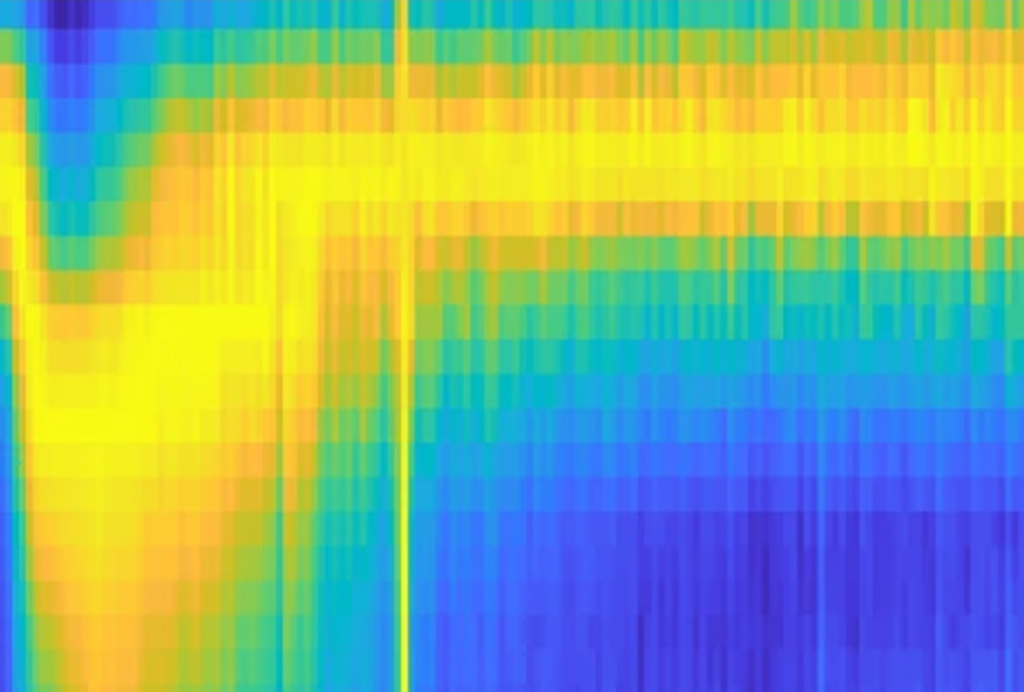SALK 2013
Recent articles
Network of protein variants suggests new autism genes
Researchers have created a network of various forms of many proteins linked to autism, revealing new molecular interactions that may play a role in the disorder. The unpublished work was presented in a poster last week at the Salk Institute, Fondation IPSEN and Nature Symposium on Biological Complexity in La Jolla, California.

Network of protein variants suggests new autism genes
Researchers have created a network of various forms of many proteins linked to autism, revealing new molecular interactions that may play a role in the disorder. The unpublished work was presented in a poster last week at the Salk Institute, Fondation IPSEN and Nature Symposium on Biological Complexity in La Jolla, California.
Fragile X mice show brain-wave abnormalities during sleep
Neurons in mice that model fragile X syndrome show immature, overexcitable firing patterns, particularly during sleep, according to unpublished research presented last week at the Salk Institute, Fondation IPSEN and Nature Symposium on Biological Complexity in La Jolla, California.

Fragile X mice show brain-wave abnormalities during sleep
Neurons in mice that model fragile X syndrome show immature, overexcitable firing patterns, particularly during sleep, according to unpublished research presented last week at the Salk Institute, Fondation IPSEN and Nature Symposium on Biological Complexity in La Jolla, California.
Eye movement, motor difficulties linked in autism
Problems with eye movements in people with autism are part of their motor difficulties and may contribute to the social deficits characteristic of the disorder, according to unpublished research presented last week at the Salk Institute, Fondation IPSEN and Nature Symposium on Biological Complexity in La Jolla, California.

Eye movement, motor difficulties linked in autism
Problems with eye movements in people with autism are part of their motor difficulties and may contribute to the social deficits characteristic of the disorder, according to unpublished research presented last week at the Salk Institute, Fondation IPSEN and Nature Symposium on Biological Complexity in La Jolla, California.
Autism-linked protein differs in male and female brains
The autism-linked protein MET is expressed at lower levels in the brains of men with autism than in control brains, according to unpublished research presented Thursday at the Salk Institute, Fondation IPSEN and Nature Symposium on Biological Complexity in La Jolla, California. Women with autism do not differ from healthy controls, however.

Autism-linked protein differs in male and female brains
The autism-linked protein MET is expressed at lower levels in the brains of men with autism than in control brains, according to unpublished research presented Thursday at the Salk Institute, Fondation IPSEN and Nature Symposium on Biological Complexity in La Jolla, California. Women with autism do not differ from healthy controls, however.
Alzheimer’s drug aids autism mouse model
Memantine, a drug used to treat Alzheimer’s disease, can reverse autism-like features in mice lacking one copy of the MEF2C gene, according to a poster presented last week at the Salk Institute, Fondation IPSEN and Nature Symposium on Biological Complexity in La Jolla, California.

Alzheimer’s drug aids autism mouse model
Memantine, a drug used to treat Alzheimer’s disease, can reverse autism-like features in mice lacking one copy of the MEF2C gene, according to a poster presented last week at the Salk Institute, Fondation IPSEN and Nature Symposium on Biological Complexity in La Jolla, California.
Childhood-onset schizophrenia, autism share genetic links
Individuals who have childhood-onset schizophrenia carry more DNA deletions and duplications associated with other disorders, such as autism, than their unaffected siblings do. The unpublished research was presented 16 January at the Salk Institute, Fondation IPSEN and Nature Symposium on Biological Complexity in La Jolla, California.

Childhood-onset schizophrenia, autism share genetic links
Individuals who have childhood-onset schizophrenia carry more DNA deletions and duplications associated with other disorders, such as autism, than their unaffected siblings do. The unpublished research was presented 16 January at the Salk Institute, Fondation IPSEN and Nature Symposium on Biological Complexity in La Jolla, California.
Explore more from The Transmitter
Dispute erupts over universal cortical brain-wave claim
The debate highlights opposing views on how the cortex transmits information.

Dispute erupts over universal cortical brain-wave claim
The debate highlights opposing views on how the cortex transmits information.
Waves of calcium activity dictate eye structure in flies
Synchronized signals in non-neuronal retinal cells draw the tiny compartments of a fruit fly’s compound eye into alignment during pupal development.
Waves of calcium activity dictate eye structure in flies
Synchronized signals in non-neuronal retinal cells draw the tiny compartments of a fruit fly’s compound eye into alignment during pupal development.
Among brain changes studied in autism, spotlight shifts to subcortex
The striatum and thalamus are more likely than the cerebral cortex to express autism variants or bear transcriptional changes, two unpublished studies find.

Among brain changes studied in autism, spotlight shifts to subcortex
The striatum and thalamus are more likely than the cerebral cortex to express autism variants or bear transcriptional changes, two unpublished studies find.